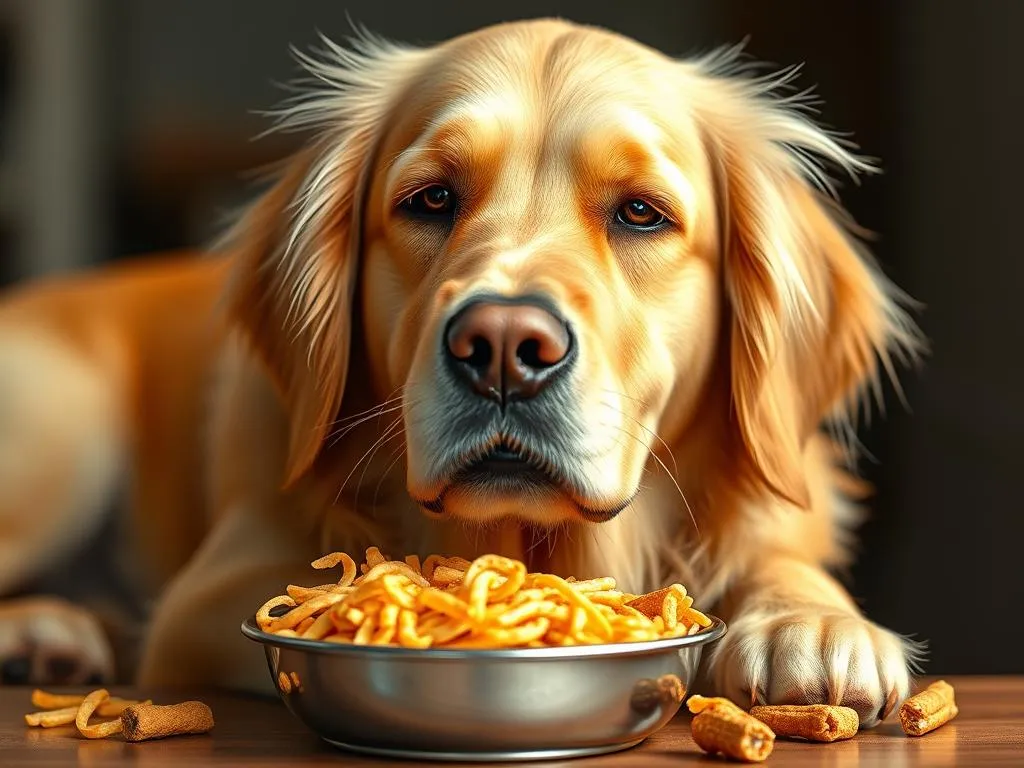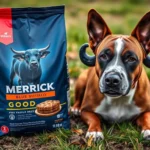
Introduction
Proper dog nutrition is crucial for ensuring the health, vitality, and longevity of our furry companions. The right diet influences everything from energy levels to disease resistance, making it a fundamental aspect of pet ownership. Among dog breeds, Golden Retrievers are known for their loving temperament and playful spirit, but they also have specific nutritional needs that must be addressed to keep them healthy and happy.
This article aims to provide comprehensive guidance on how much food to feed a Golden Retriever, taking into account various factors that influence feeding amounts. By understanding these factors, you can make informed decisions that support your dog’s overall health and wellbeing.
Understanding Dog Nutrition
Basic Nutritional Components
When it comes to dog nutrition, understanding the basic nutritional components is essential.
Proteins
Proteins are vital for growth, tissue repair, and the maintenance of a healthy immune system. For Golden Retrievers, protein should be a significant part of their diet. Ideal sources include:
- Chicken
- Beef
- Fish
- Eggs
- Lentils
These sources provide high-quality protein that supports muscle development and overall health.
Fats
Fats are crucial for providing energy, supporting skin health, and facilitating the absorption of fat-soluble vitamins. For Golden Retrievers, healthy fat sources include:
- Fish oil
- Chicken fat
- Flaxseed oil
Incorporating the right types of fats into your dog’s diet can lead to a shiny coat and improved skin condition.
Carbohydrates
Carbohydrates serve as a source of energy and play a role in digestive health. While dogs do not require carbohydrates in the same way humans do, they can benefit from certain sources such as:
- Brown rice
- Sweet potatoes
- Oats
- Barley
These foods can provide the necessary energy for an active Golden Retriever.
Vitamins and Minerals
Vitamins and minerals are essential for various bodily functions. For Golden Retrievers, focus on providing a balanced intake of:
- Vitamin A for vision and immune function
- Vitamin D for bone health
- Calcium for strong teeth and bones
- Omega fatty acids for skin health
Ensuring that your dog’s diet includes these nutrients is key to maintaining their health.
Common Nutritional Myths
There are many misconceptions surrounding dog food and feeding practices. Here are a few myths debunked:
-
Myth 1: Dogs can live on a vegetarian or vegan diet.
Truth: Golden Retrievers, like most dogs, require animal protein for optimal health. -
Myth 2: All dog foods are the same.
Truth: Quality varies significantly among brands, and it’s essential to choose high-quality food. -
Myth 3: Dogs should eat the same food every day.
Truth: Dogs can benefit from variety, but any changes should be gradual.
Always consult with a veterinarian to ensure that your dog’s nutritional needs are being met.
Factors Influencing Food Amounts
Age and Life Stage
The age and life stage of your Golden Retriever significantly influence their nutritional needs.
- Puppies require more frequent feeding (3-4 meals a day) and need nutrient-dense food to support rapid growth.
- Adults generally thrive on 2 meals a day, with portions based on their weight and activity level.
- Seniors may need fewer calories due to decreased activity but should still receive a balanced diet.
Weight and Body Condition
Determining the ideal weight for your Golden Retriever is essential for establishing appropriate feeding amounts. Most male Golden Retrievers weigh between 65-75 pounds, while females typically weigh 55-65 pounds.
The Body Condition Score (BCS) is a useful tool to assess your dog’s weight. A score of 5/9 is considered ideal. If your dog is underweight, you may need to increase food portions; if overweight, consider reducing them.
Activity Level
The activity level of your Golden Retriever is another critical factor affecting their caloric needs.
- Sedentary dogs may require fewer calories, while active dogs (those involved in regular exercise or activities) will need more food to meet their energy demands.
Adjusting food portions based on your dog’s activity level is essential for maintaining a healthy weight.
Health Status
Health issues can significantly influence dietary needs. For instance, if your Golden Retriever has conditions like obesity, diabetes, or allergies, it’s crucial to consult with a veterinarian for tailored dietary recommendations.
Calculating Daily Food Portions
General Guidelines for Feeding Amounts
Standard feeding recommendations can help guide how much food to feed a Golden Retriever. Here’s a general overview:
- Puppies: 1.5 to 2.5 cups per day, divided into 3-4 meals.
- Adults: 2 to 3 cups per day, split into 2 meals.
- Seniors: 1.5 to 2.5 cups per day, based on activity level.
These amounts can vary depending on the specific brand of dog food and the caloric density of the food.
Measuring Food Portions
Measuring food accurately is vital for maintaining your dog’s health. While using cups is common, measuring by weight (in grams) can provide more accuracy. Consider using a digital kitchen scale for precision.
Adjusting Portions Based on Feedback
Monitoring your Golden Retriever’s weight and body condition is crucial. Signs of underfeeding may include:
- Rib visibility
- Lethargy
- Poor coat condition
Conversely, signs of overfeeding include:
- Difficulty in feeling ribs
- Excessive weight gain
- Decreased activity
Adjust portions based on your dog’s condition and consult a vet if you’re unsure.
Choosing the Right Dog Food
Types of Dog Food
Golden Retrievers can thrive on various types of food:
- Dry Food (Kibble): Convenient and cost-effective, but ensure it meets nutritional needs.
- Wet Food: Often more palatable, but can be more expensive and may not provide dental benefits.
- Raw Diets: Can offer nutritional benefits but require careful planning to ensure balance.
Reading Dog Food Labels
Understanding dog food labels is crucial for selecting the right food. Look for:
- High-quality protein as the first ingredient.
- Specific meat sources (e.g., “chicken” instead of “meat by-product”).
- A balance of fats and carbohydrates.
Avoid foods with excessive fillers or artificial additives.
Recommendations for High-Quality Brands
Some reputable dog food brands suitable for Golden Retrievers include:
- Royal Canin: Known for breed-specific formulas.
- Hill’s Science Diet: Offers scientifically formulated diets for different needs.
- Orijen: A premium brand focusing on high protein content.
When choosing a brand, consider your dog’s specific needs and consult a veterinarian.
Special Considerations
Food Allergies and Sensitivities
Golden Retrievers can be prone to food allergies. Common allergens include:
- Beef
- Dairy
- Wheat
If you suspect an allergy, consult your veterinarian to identify the cause and develop an appropriate diet.
Homemade Diets and Raw Feeding
While homemade diets can be beneficial, they require careful planning to ensure nutritional balance. Consult a veterinarian or a pet nutritionist for guidance.
Raw feeding can also be a viable option, but it carries risks such as bacterial contamination. Always do thorough research and follow safety guidelines.
Supplements for Optimal Health
Consider supplements if your Golden Retriever has specific health needs or dietary gaps. Common supplements include:
- Omega-3 fatty acids for skin and coat health.
- Joint supplements like glucosamine for aging dogs.
Choose supplements carefully and consult with a veterinarian for recommendations.
Conclusion
Determining how much food to feed a Golden Retriever depends on factors such as age, weight, activity level, and health status. By understanding your dog’s unique needs and monitoring their condition, you can ensure they receive the right amount of nutrition for a healthy, happy life.
Staying informed about dog nutrition is essential for providing the best care for your furry friend. Always consult with your veterinarian for personalized dietary advice tailored to your Golden Retriever’s specific needs.









